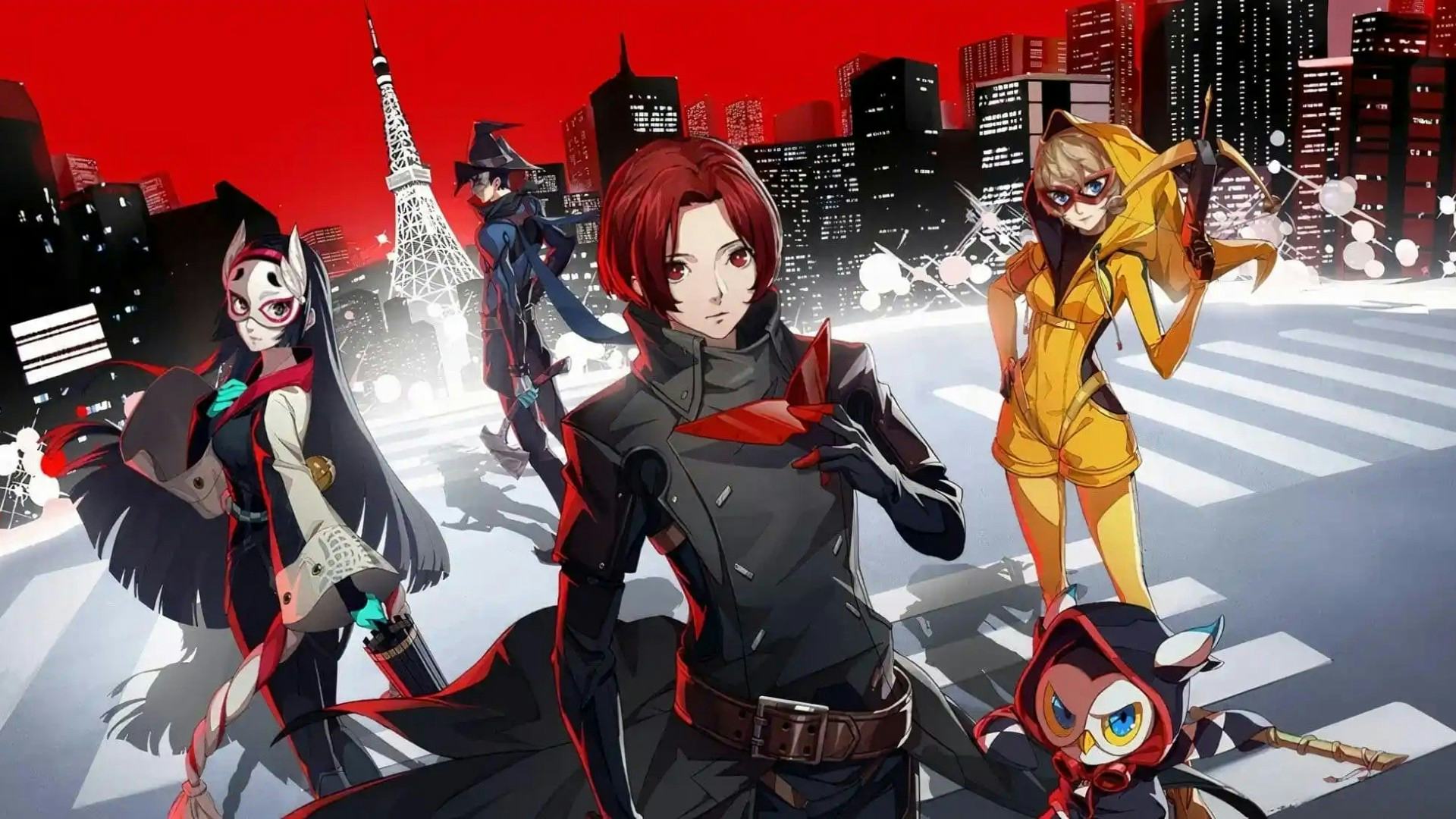
Since Persona 5 released nearly a decade ago, we haven't seen a new mainline game, with the series instead doubling down on creative spinoffs. In some regards, it feels like Persona 5 is played out, but the new free-to-play mobile spinoff, The Phantom X, makes it feel like there might still be one in the chamber.
After spending hundreds of hours, and more money than I’d like, on gacha games like Fire Emblem Heroes and Genshin Impact, I've mostly sworn off them in recent years. But after four hours with Persona 5: The Phantom X, I can already tell it's the one to reel me back in. There are largely two reasons for that — the admittedly fascinating story and a smart Persona-esque spin on the time you sink into mobile games. While Phantom X has been out in China for nearly a year, it’s finally making its worldwide debut on June 26.
Phantom X, in a way, feels like Persona 5-2, with a story that deliberately builds on events of the original game, but with some kind of alternate world or timeline mystery at its core. After playing through the opening section of the original game as Joker, you’re ambushed by a mysterious cloaked figure, as the world glitches. That figure is the protagonist of Phantom X, who wakes up from a dream in a sweat.
From there, like in Persona 5, the protagonist is drawn into the Metaverse, meets a bizarre owl-like creature named Lufel (this game’s Morgana), and gets the power of Persona. Despite its gacha trappings, Phantom X is an extremely narrative-based game. But you don’t need to be worried about this game’s story feeling like a deviation from the larger series.
“For the main story and social links (called Synergy), 100 percent of it is written by Atlus. What [developer] Perfect World does is create the assets and everything based on the story that was written, then that goes to the supervision of Atlus,” chief producer Yosuke Uda tells Inverse, “The writing of the side stories is done by Sega, as the company has experience running live service games that focus on story.”
The way Phantom X mimics the story of Persona 5 is fascinating, feeling almost like a Twilight Zone version of the beloved RPG. The crux of this story seems to be reclaiming the “Desires” of society that have been taken, turning civilians into zombies with no will to live. But it becomes abundantly clear this is a story with the same themes (collective unconscious, righting society’s wrongs), but with a different flavor.
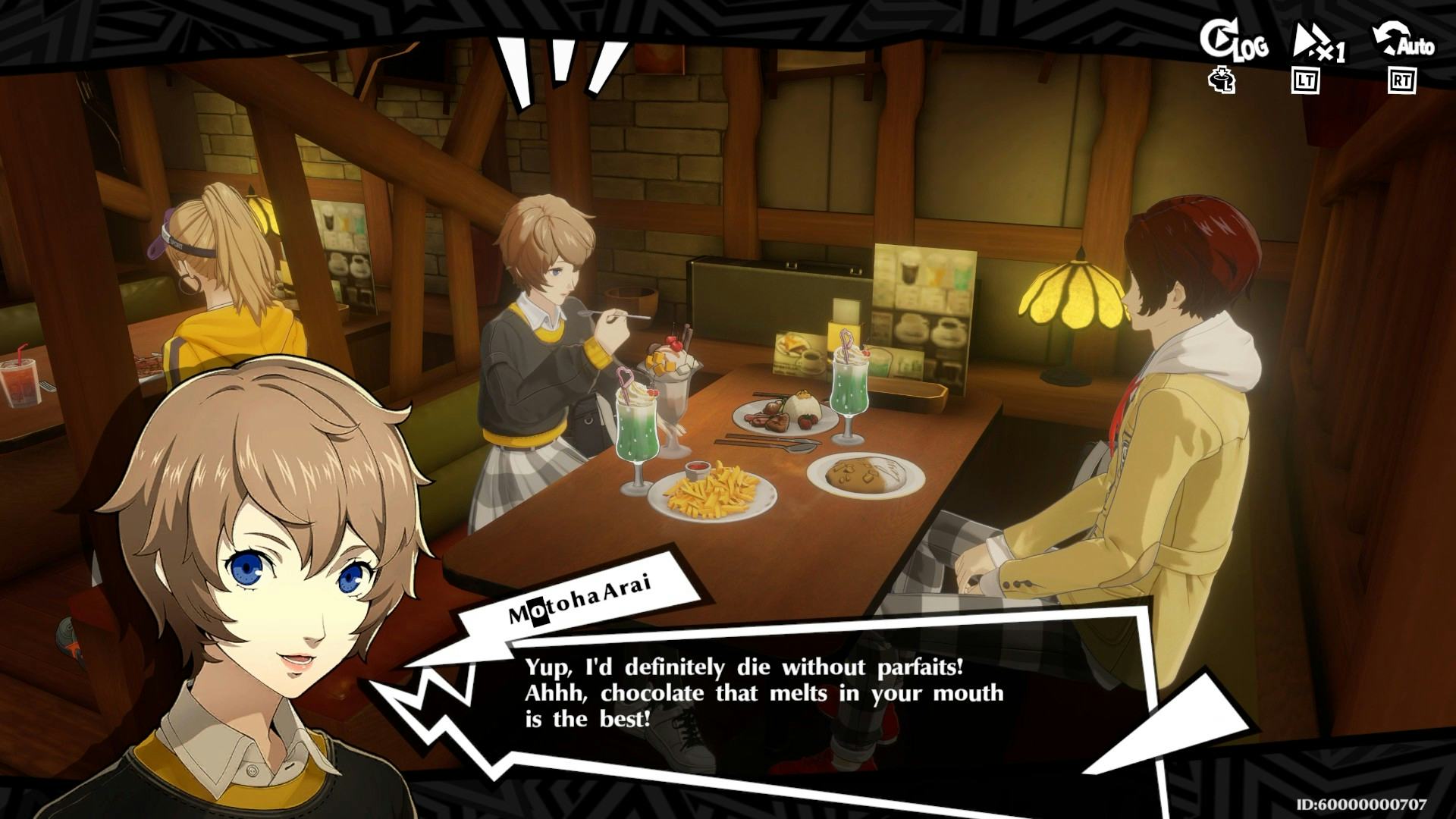
Part of the reason for that is how the cast of characters develop their own distinct Phantom Thieves style — from the tomboyish Motoha with an overabundance of confidence, to the deadpan humor of the protagonist. Lufel is a particular highlight so far — sassy, smarmy, and rebellious — and off the bat more likable than Morgana.
While my preview time was filled with a lot of story and dialogue, I was also able to get a bit of a sense for the flow of the game and how the gacha mechanics work. To be clear, Phantom X seems like a staggeringly huge game, and I only got a taste of all the activities you can do. While I dabbled in the gacha system, it’s also impossible to tell how meaningful the system feel without sinking a lot of hours into it, and seeing how things like pull rates and doubles play out.
Remarkably, Phantom X has almost the same structure as Persona 5 — in terms of story flow and exploration. Nearly the entire city of Tokyo is open for exploration in an open world format, letting you buy items, new weapons, find side quests and confidants, progress social links, work part-time jobs, raise social stats, and more. All of these are called “City Events,” and essentially seen as one of the Phantom X’s distinct elements according to Uda.
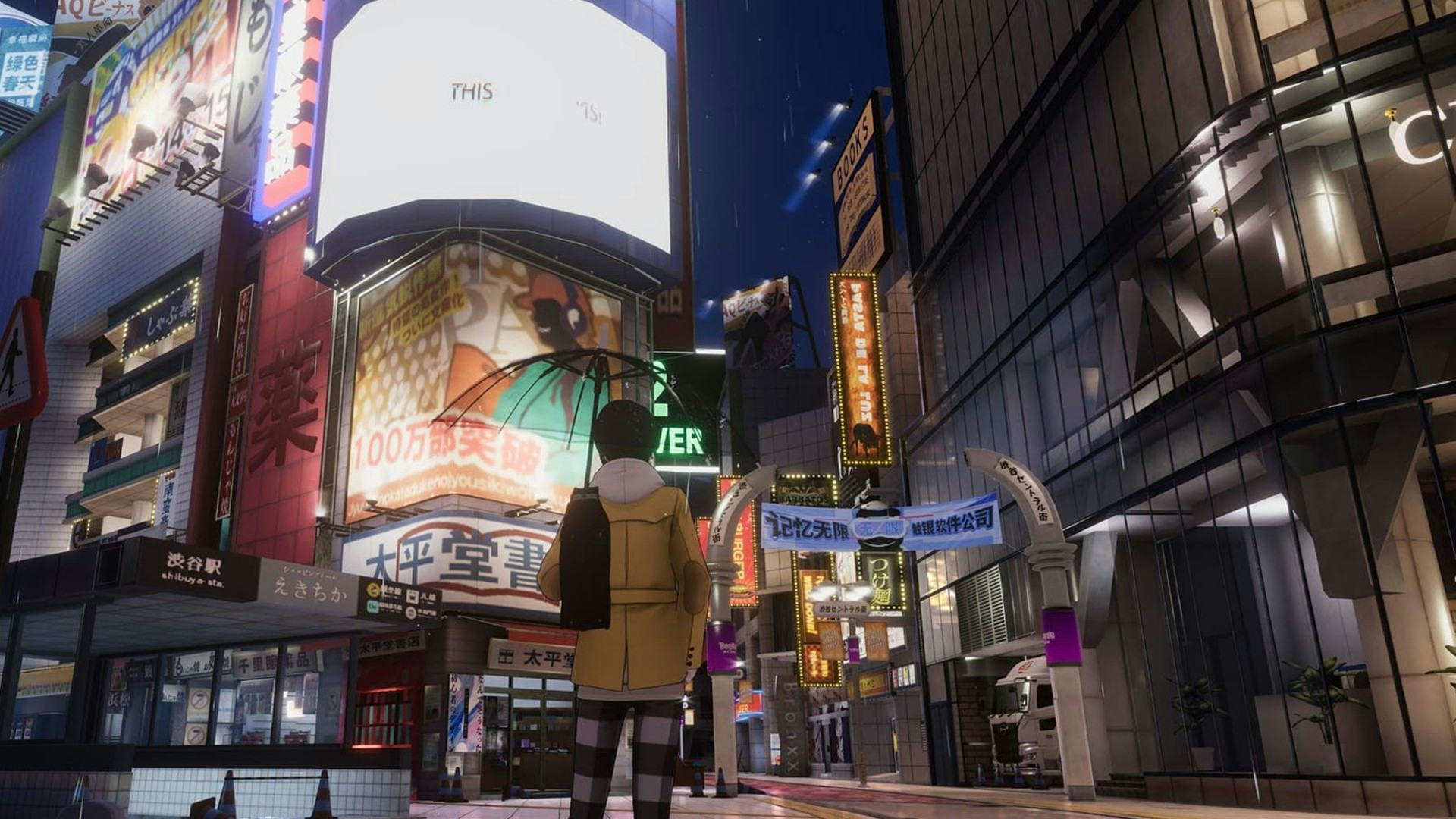
All of the core elements of Persona are here, but sort of stripped down to a more simplified version, one that notably removes the time management elements (sort of). Instead of progressing through a calendar system, you can do any of these side activities at any time by using stamina, like you have in a lot of mobile games.
There’s a surprising amount of variety to what you can do around the city, and my personal favorite so far is the absolute circus of confidants you can find. Heading to the gym, I made a friend with a bodybuilder named Anderson, who claims he’s worked out so much that he can literally hear other people’s muscles — and yours are screaming out to be pumped. In another case, I went to my room and logged onto a farming MMO, only to be greeted by a cheerful girl in a lolita outfit offering me piles of cash to buy all the free land the game gave me. The structure and ongoing nature of mobile games make these kinds of bizarro social links feel like a perfect fit, especially with Phantom X putting a lot of emphasis on exploring and interacting with the city itself.
The other side of things is dungeon exploration and combat. There are, of course, dungeons tied to the main story, but you can also explore the seemingly never-ending depths of Mementos, which seems to have been heavily expanded to emphasize the mobile replayability.
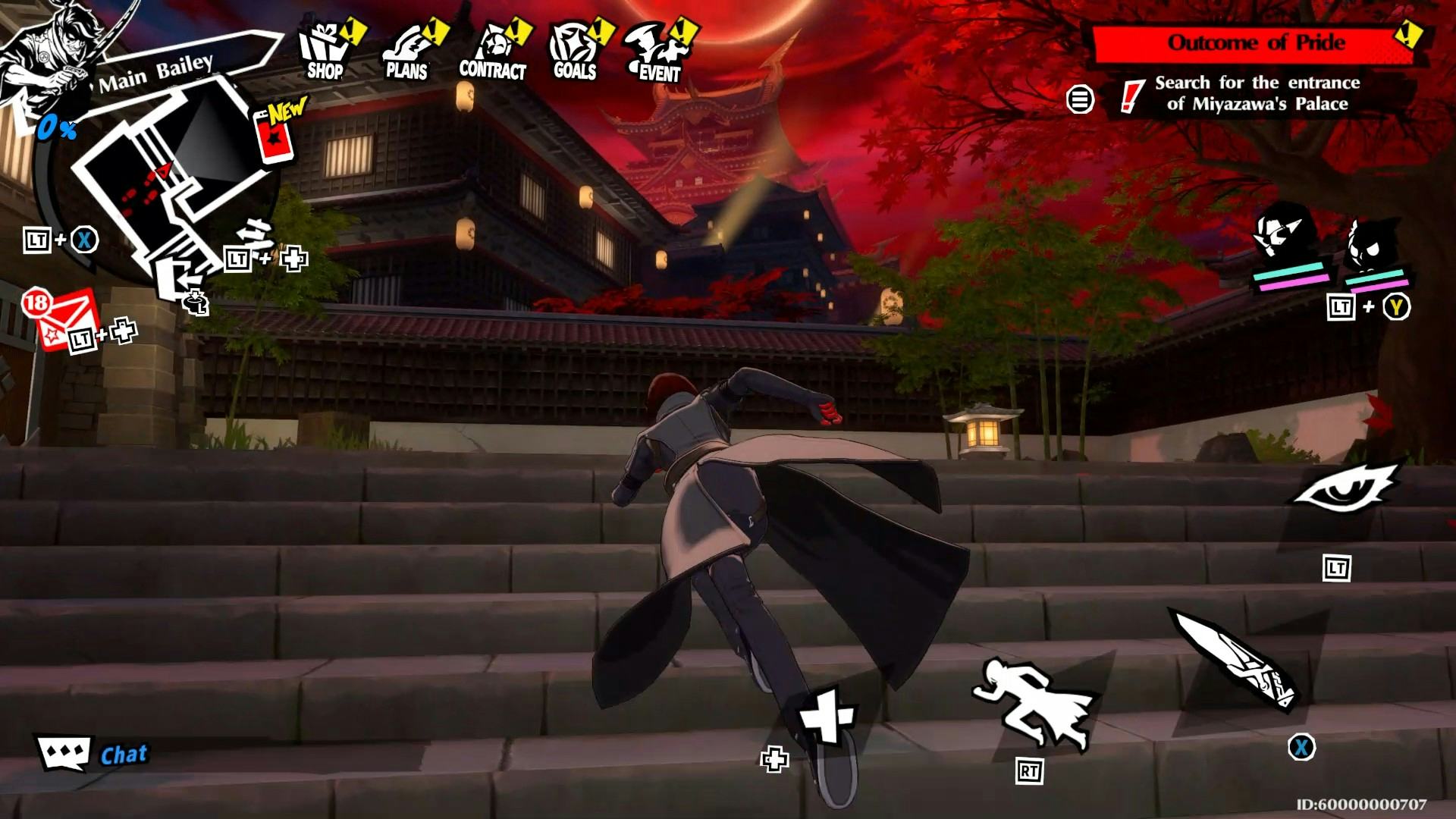
Phantom X’s combat plays like a simplified version of the main Persona 5. There’s still tactical depth in terms of exploiting weaknesses, equipping multiple Personas, etc. But things like the “One More,” have been simplified into a single extra attack. At the same time, there’s a single special attack gauge that builds up as you dish out damage, letting you choose a character to use it with before having to charge it again.
The social simulation and dungeon delving are two clearly distinct halves of the game, and Uda says there’s actually a reason for that, based on the game’s cross progression.
Uda says they intentionally developed the school life and city parts to be played quickly and easily, perfect for tackling while you’re out and about. But the dungeons are more complex and visually demanding, which might be optimal for taking down on your PC at home. In this way, Uda hopes players can utilize the game’s cross-progression to experience Phantom X in different ways, and not feel like they have to sit through lengthy dungeon runs on their phones.
As for the gacha elements, there are two separate things it’s used for — pulling optional characters and pulling weapons. All of the main characters are obtained through the story and can be trained in combat. I should say, however, I still haven’t heard if simply playing the main story will level your party enough, or if you’ll need to do side content. There is, however, an array of optional characters you can use to outfit your party, and weapons can help give your characters a boost. But it also seems like you can buy weapons in town using money.
To facilitate these gacha systems, most of the bonuses from raising your confidant levels award you with various resources that you can use to upgrade your characters. While my initial sense is that the gacha system feels pretty lenient and not absolutely necessary, that could easily change the further you get into the game. That’s by far my biggest worry right now — that these systems might get in the way of the story.
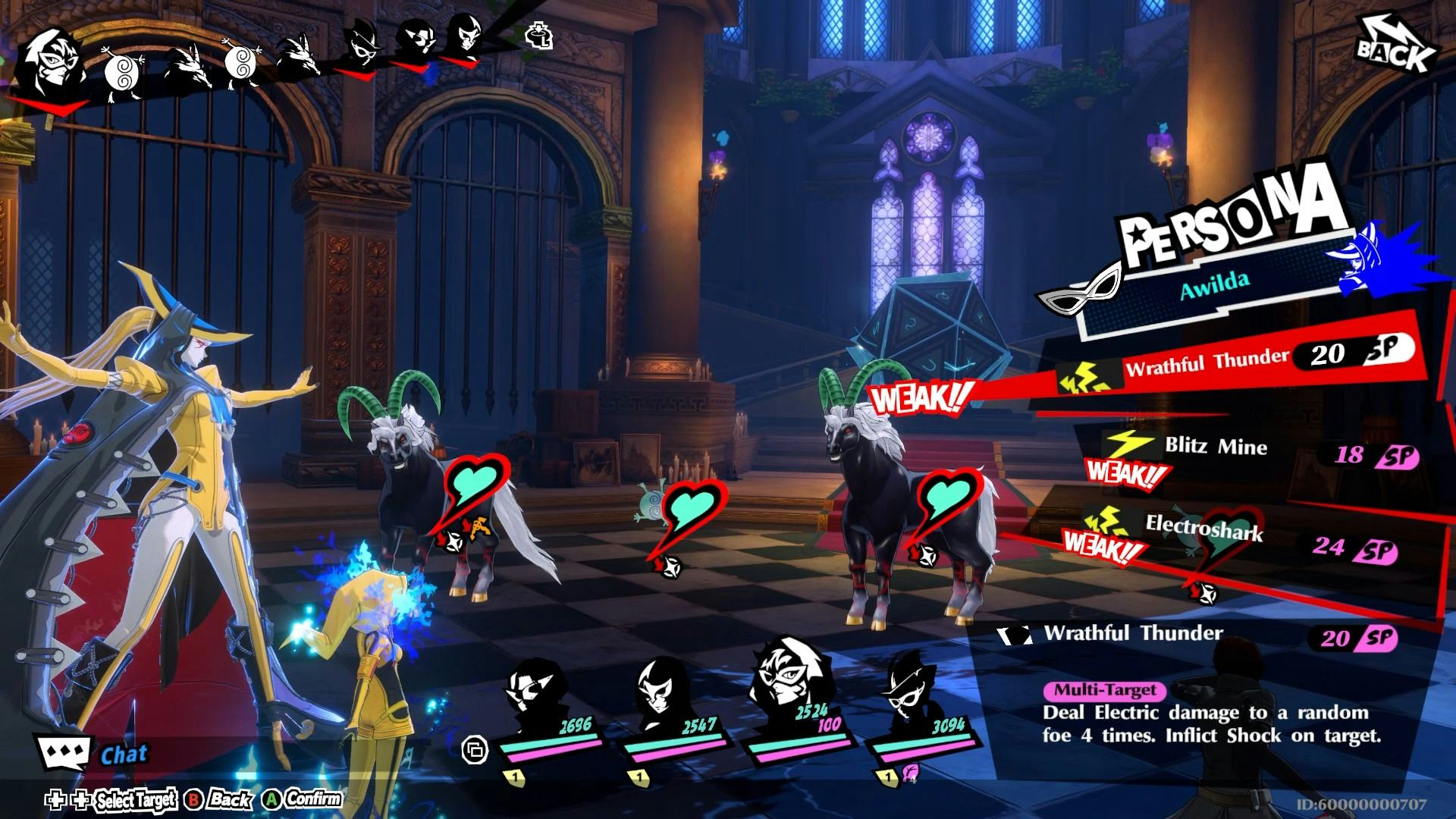
After checking out Phantom X, it’s remarkable how it straight up feels like another Persona game, and I’m genuinely invested in seeing where the story and characters go. And while I didn’t have to really touch the gacha elements, it arguably goes against how the rest of the experience feels. Drawing random characters to plop into my party feels odd when they don’t really have all that much story context. The wider array of city activities feels great, and I get why the time management would have been hard to implement here — but I also hope that the stamina system won’t feel like too much of a roadblock. There’s also a worry that eventually doing these side activities might feel like ancillary fluff, if it’s not necessary to progress the story in a way that they do in the single-player games.
I have a lot of hesitations about Phantom X, mostly because of how predatory modern gacha games have become, and I wonder how those systems can be meaningfully integrated with a single-player RPG. But, at the same time, Phantom X clearly has enough going for it that I’m willing to give the game a chance to impress me. A strong narrative hook instantly gets you invested in Phantom X, and the game has some genuinely astounding production values. It may not be Persona 6, but if Phantom X can make all its elements come together just right, it may be enough to tide you over.







